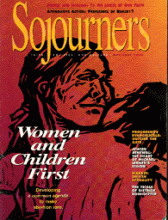Former Sen. Huey Long regularly quipped, "All politics is local." According to a collection of essays on citizenship, Building a Community of Citizens, edited by Don Eberly, current political thinkers would agree. Although the writers offer differing perspectives, all concur the brand of citizenship being expressed in America today is dangerous to the health of the nation. They lament that the United States, built upon the principle of self-government, has become a nation of consumers of government.
Though the writers are in agreement that "rights talk" has undermined responsibility and hurt our nation, they vary in assessing solutions. They weigh in across the ideological scale, ranging from William A. Strauss and Neil Howe's nostalgic look at the '50s, when conformity was in style, to Harry Boyte's herald of populism.
The final section of the book, by far the most helpful, compiles five different perspectives on civil society-traditionalist, communitarian, libertarian, populist, and centrist. The concise essays outline the main tenets and precepts of each "movement," with no apologies. The inclusion of this section highlights the central assumption that common people can be trusted to govern themselves.
This assumption and its threatened state drives this book's creation. This work differentiates itself from others arguing for minimal federal government because the authors did not fall to the endorsement of extant free-market capitalism as the panacea, or even necessary evil, of a political democracy.
Authors do talk about values, that oft-misunderstood word, abused and manipulated by the conservative Right. In his essay, Edward Schwartz illustrates how both Alexis de Tocqueville and Adam Smith were basing their optimism on the assumption that American values would hold. Each essay comments on the need to be a value-informed society.
THE BOOK FAILS, though, by acquiescing to the current rhetoric that blames the poor.
Read the Full Article
